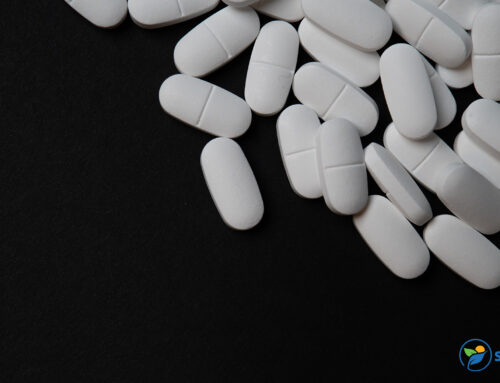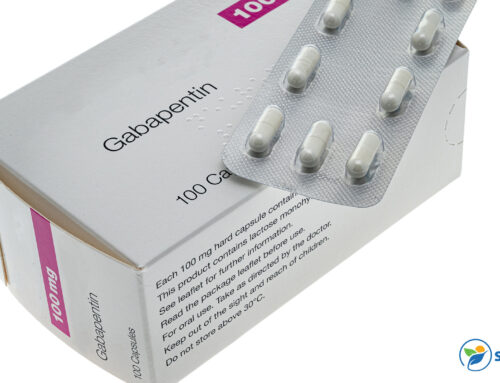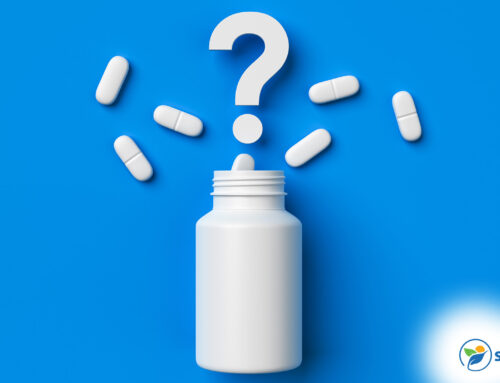When struggling with drug addiction, quitting cold turkey is an appealing option. However, getting off drugs or medication can be a complex process that depends on the substance and your unique situation. Some drugs require a gradual tapering process, while others can be stopped abruptly without serious or fatal consequences. Before quitting suddenly, it’s important to understand what complications may arise.
Whether you’re considering quitting yourself or supporting a struggling loved one, knowing how to cut back on medications or drugs safely will improve your chances of success. Continue reading to learn more about the pros and cons of drug tapering, which drugs it’s suitable for and when to seek professional assistance.
What Is Drug Tapering?
Drug tapering is the process of gradually reducing a drug or medication’s dosage until an individual can stop taking it without adverse effects. It’s a key part of helping someone come off drugs safely when they request it or are required to do so for health reasons. How long it takes depends on the specific drug and the individual’s needs.
The main goal of this approach is to reduce the adverse side effects of withdrawal caused by suddenly stopping drug use. An individual may experience a range of physical and emotional withdrawal symptoms. With certain drugs, such as benzodiazepines or opioids, abruptly stopping use can result in life-threatening withdrawal symptoms.
Failing to taper drugs properly may result in a number of adverse reactions, including:
- Irregular heartbeat
- Fever
- Shortness of breath
- Headaches
- Confusion
- Visual or tactile hallucinations
- Muscle aches or spasms
Quitting Cold Turkey vs. Drug Tapering
You’ve probably come across the classic advice for smokers trying to kick their nicotine habit: “Just quit cold turkey.” This approach demands quitting use immediately and entirely. While it sounds simple and effective, drug addiction is usually much more complicated.
Despite greater public awareness, many people struggle to quit drugs on willpower alone. In 2021, the Substance Abuse and Mental Health Services Administration’s (SAMHSA) National Survey on Drug Use and Health found 57.3 million Americans had used tobacco in the past month, and 60 million were past month binge drinkers.
The risks of suddenly stopping drug use can range from mild to fatal. Successfully managing these symptoms is difficult without medical supervision. However, quitting some drugs cold turkey carries minor risks. Smoking and tobacco cessation may cause cravings, but extreme side effects are unlikely. Cocaine is hard to taper down and highly risky to continue using, so it’s also a good candidate for the cold turkey method.
In contrast, tapering involves the help of health care professionals who monitor and adjust patients’ dosages over time. While it may take longer than quitting cold turkey, tapering helps people feel more in control of their recovery process and their ability to successfully cease drug use.
A major benefit of tapering drugs down over time is that it reduces the chances of a relapse. Reducing the dosage in a stepwise manner gives a person’s body time to adjust, minimizing severe withdrawal symptoms. However, there are some potential drawbacks to this approach. It can be time-consuming and may involve outside help from a medical professional. Additionally, individuals’ experiences vary, and withdrawal symptoms aren’t always predictable.
Which Drugs Shouldn’t Be Stopped Suddenly?
Some substances shouldn’t be stopped suddenly once a dependence has formed. The dangers of a cold turkey approach have been widely recorded for alcohol, heroin, prescription painkillers and prescription sedatives.
Alcohol is an addictive substance that shouldn’t be cut out immediately. A few days after suddenly quitting alcohol consumption, some individuals experience a serious form of withdrawal called delirium tremens. This potentially fatal state is marked by rapid-onset confusion and nervous system hyperactivity. Delirium tremens affects an estimated 3%–5% of people overcoming alcohol addiction.
Whether street heroin or prescription narcotics, opioids are also risky to quit without tapering. In fact, painkillers such as OxyContin and Vicodin have warnings against suddenly stopping use. It typically takes about 12 hours for withdrawal symptoms to appear, which commonly include chills, fatigue, aches, memory issues and trouble breathing.
Benzodiazepines (aka benzos) are prescription sedatives that be highly addictive and dangerous to quit quickly. Xanax, Valium and other sedatives are commonly prescribed to treat anxiety, insomnia and seizure management. Withdrawal symptoms from discontinuing benzo use can vary significantly, and many symptoms mirror those associated with alcohol withdrawal.
How to Taper Off Drugs Correctly
There are several ways of tapering down drug dosages. The appropriate method depends on each individual’s needs, circumstances and preferences. In an inpatient setting, medical professionals will work closely with a patient to set goals and monitor progress.
The direct tapering method involves administering the same substance at lower and lower dosages over time until the patient functions regularly without it. This approach is best with drugs that could cause fatal adverse reactions, such as alcohol or benzos.
Instead of using the same substance, substitution tapering involves using a similar drug. This method is effective for street drugs and situations where past dosages are uncertain. Clinics typically carry short-acting versions of drugs to aid the detox process.
Another method is titration tapering, which allows the dosage to be lowered by dilution. The weaker concentration decreases the drug’s effect while still minimizing withdrawal symptoms. Substances that are easily diluted with water, such as alcohol, are best suited to this type of tapering.
Medical Assistance With Drug Tapering
To carefully taper off a drug, it’s essential to have a strong support system. Withdrawal symptoms may linger for several weeks or even months, so working with health care professionals may be the best option. With the right resources and professional guidance, it’s possible to overcome addiction and regain control of your life.
At Sunlight Recovery, we know how important it is for patients to recover in a safe, relaxing and supportive environment. Patients at our state-of-the-art addiction treatment facility receive comprehensive treatment using innovative technologies. If you’ve been struggling with drug addiction, contact us today to take the first step toward sober living.






